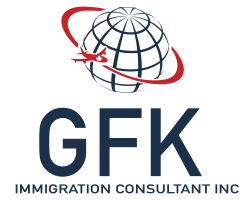
Canada’s Express Entry CEC Eligibility Criteria
Canada remains a top destination for skilled workers and international graduates seeking a stable, prosperous future.
For those already living and working in Canada on temporary permits, the Express Entry Canadian Experience Class (CEC) offers a golden opportunity to transition to permanent residency.
But how does Immigration, Refugees and Citizenship Canada (IRCC) assess your eligibility? What qualifies as valid work experience, and what pitfalls should you avoid?
In this comprehensive guide, we’ll break down everything you need to know about the CEC program in 2025.
From how IRCC officers evaluate your work experience to critical factors that could make or break your application, this article is designed to help you navigate the process with confidence.
Whether you’re a temporary foreign worker or an international graduate, these insider tips will boost your chances of success and help you avoid common mistakes.
Let’s dive into the details of how IRCC officers assess CEC work experience, the essential factors to keep in mind, and how your employment status is determined.
Table of Contents
What Is the Canadian Experience Class (CEC)?
The CEC is a permanent residency stream under Canada’s Express Entry system, tailored for individuals with skilled work experience gained in Canada.
It’s an ideal pathway for temporary foreign workers and international graduates who have already adapted to the Canadian job market and lifestyle.
The program prioritizes those who can contribute to Canada’s economy with their proven skills and experience.
To qualify, you need at least 12 months of full-time (or equivalent part-time) skilled work experience in Canada within the last 36 months before applying.
This experience must fall under the National Occupational Classification (NOC) system-TEER 0, 1, 2, or 3 categories that include managerial, professional, and skilled trade occupations.
But qualifying isn’t as simple as clocking hours. IRCC officers scrutinize your application to ensure your experience meets specific criteria.
Let’s explore how they assess your work experience and what you need to prove.
How IRCC Officers Assess CEC Work Experience
IRCC officers follow a structured process to determine if your Canadian work experience meets CEC requirements.
Here’s a step-by-step look at what they evaluate:
1. Minimum Work Experience Requirement
To be eligible, you must have:
- 12 months of full-time work (at least 30 hours per week), or
- An equivalent amount in part-time work (e.g., 15 hours per week for 24 months).
This experience must be gained within the 36 months prior to your application submission.
You can combine work from multiple jobs, as long as they fall under TEER 0, 1, 2, or 3 categories.
For example, six months in a TEER 1 job and six months in a TEER 0 job could meet the threshold.
2. Skilled Work Under NOC Categories
Your experience must align with the duties and responsibilities outlined in the NOC occupational descriptions.
IRCC officers check two key aspects:
- Lead Statement Compliance: You must have performed the actions described in the lead statement of your occupation’s NOC description.
- For instance, if you’re applying under Advertising, Marketing, and Public Relations Managers, you need to show you’ve managed campaigns or overseen teams as outlined.
- Main Duties: You must have completed a significant number of the main duties listed in the NOC, including all essential ones. Simply holding a job title isn’t enough—you need to demonstrate you’ve done the work.
3. Exclusion of Student Work Experience
If you gained experience while enrolled as a full-time student (e.g., through co-op programs, on-campus jobs, or off-campus work under a study permit), it does not count toward CEC eligibility.
IRCC uses the Global Case Management System (GCMS) to cross-check your study and work permit history, ensuring no overlap between full-time studies and claimed work experience.
4. Verification Process
Officers rely on the GCMS to verify your immigration history, including the validity of your work permits during the qualifying period.
Any discrepancies—like working without authorization—can lead to rejection or inadmissibility.
Important Factors to Remember for CEC Eligibility
Beyond the basics, several nuanced factors can impact your CEC application. Understanding these will help you avoid surprises and strengthen your case.
1. Employment Status at Application Time
You don’t need to be employed when you submit your CEC application. As long as you’ve accumulated the required 12 months of skilled work experience within the past 36 months, you’re eligible.
This flexibility is a major advantage for those between jobs or transitioning careers.
2. Temporary Resident Status Requirement
During your qualifying work period, you must have held temporary resident status in Canada (e.g., a valid work permit).
Experience gained without legal status—such as working after your permit expires—won’t count and could jeopardize your entire application.
3. Self-Employment Doesn’t Qualify
IRCC excludes self-employment from CEC work experience calculations. If you ran your own business or worked as a freelancer, even in a skilled NOC category, those hours won’t count.
The reasoning? Self-employment lacks the third-party employer-employee relationship that CEC prioritizes.
Plus, unauthorized work (e.g., cash-in-hand jobs) is a red flag that could lead to inadmissibility under the Immigration and Refugee Protection Act.
4. Maintained Status Counts
If your work permit expired but you applied to extend it before the deadline, you enter a period of maintained status (formerly implied status).
Work experience gained during this time is eligible, provided you continued working under the same conditions as your original permit until a decision was made on your extension.
5. Vacation Time Allowance
IRCC officers typically allow for a reasonable amount of vacation time when calculating your 12 months of work experience.
For example, a 52-week period might include two weeks of paid vacation without affecting eligibility.
However, this allowance applies only to time spent in Canada—work experience gained abroad can’t be “substituted” as vacation time to meet the in-Canada requirement.
6. Case-by-Case Assessment
Every CEC application is unique. Officers review all available evidence—work permits, reference letters, tax documents—and decide based on the full context.
A strong application leaves no room for doubt about your eligibility.
How IRCC Officers Determine Employment Status
Your employment status during the qualifying period is a critical piece of the CEC puzzle.
Here’s how officers verify it and what you need to prove.
1. Third-Party Employment Requirement
Since self-employment is excluded, you must show you worked for a third-party employer in Canada.
This means an individual or organization (not yourself) paid you for skilled work under TEER 0, 1, 2, or 3.
Officers look for evidence of an employer-employee relationship, not just a job title.
2. Key Document: The T-4 Slip
The T-4 slip—your annual tax statement from your employer—is one of the strongest pieces of evidence to prove third-party employment.
It shows your income, taxes withheld, and employer details, confirming you were on payroll.
Including T-4 slips with your application can significantly boost your credibility.
3. Supporting Documentation
While T-4 slips and Notices of Assessment (NOA) from the Canada Revenue Agency (CRA) are powerful, they’re not mandatory.
If you don’t have them (e.g., due to recent employment or lost records), you can submit alternative documents, such as:
- Work permits: Copies of your most recent permits (unless you’re work-permit exempt).
- Employer reference letters: Detailed letters specifying your job title, dates of employment, hours worked, and duties performed.
- Pay stubs: Regular pay records showing your employer’s name and your earnings.
- Work contracts: Signed agreements outlining your role and terms.
- Employment records: Any official correspondence from your employer verifying your tenure.
A combination of these documents can paint a clear picture of your work history, even without tax slips.
4. Proving Authorization
Officers check that your work was authorized under a valid permit or exemption.
Unauthorized work—like overstaying a permit or working in a role not allowed—disqualifies that experience and risks inadmissibility.
How to Build a Winning CEC Application in 2025
Now that you understand how IRCC assesses CEC eligibility, let’s turn this knowledge into action. Follow these practical tips to create a standout application:
1. Gather Comprehensive Evidence
Compile all relevant documents—work permits, T-4s, NOAs, reference letters, pay stubs, and contracts. Ensure reference letters are specific, detailing your NOC code, duties, and hours worked. Vague or generic letters may raise doubts.
2. Double-Check NOC Alignment
Review the NOC descriptions for your occupation(s) and confirm your duties match. If you held multiple jobs, list each one separately with corresponding evidence. Misrepresenting your role could lead to rejection.
3. Avoid Student Work Pitfalls
If you worked during your studies, exclude that experience from your CEC calculation. Focus only on post-graduation work under a valid permit, such as a Post-Graduation Work Permit (PGWP).
4. Account for Gaps and Vacation
Be transparent about employment gaps or vacation time. A reasonable break (e.g., two weeks per year) won’t hurt, but extended absences abroad could reduce your qualifying period.
5. Seek Professional Advice
If your case is complex—say, you worked under maintained status or switched employers—consult an immigration expert. They can help you present your experience accurately and avoid technical errors.
6. Submit Early
With Express Entry rounds occurring regularly, submit your profile as soon as you’re eligible. The sooner you’re in the pool, the faster you can receive an Invitation to Apply (ITA).
Common Mistakes to Avoid
Even small errors can derail your CEC application. Watch out for these pitfalls:
-
- Counting self-employment: Freelance or business ownership won’t qualify, no matter how skilled.
- Including student work: Co-op or part-time jobs during full-time studies are ineligible.
- Missing documents: Incomplete evidence weakens your case and invites scrutiny.
- Unauthorized work: Even a brief lapse in permit status can disqualify experience.
- NOC mismatches: Claiming a job title without matching duties will backfire.
Canada’s immigration goals are ambitious, with plans to welcome over 400,000 new permanent residents annually through 2025 and beyond.
The CEC is a cornerstone of this strategy, targeting skilled workers already contributing to the economy.
With labor shortages in sectors like healthcare, tech, and trades, your skills are in high demand.
Plus, the CEC offers a faster track to permanent residency compared to other streams, often processing applications in six months or less after an ITA.
For temporary residents dreaming of planting roots in Canada, it’s a game-changer.
The Canadian Experience Class is more than a program—it’s a lifeline for skilled workers and graduates to secure a future in Canada.
By understanding how IRCC officers assess your work experience, mastering the key factors, and proving your employment status with solid evidence, you can position yourself for success in 2025.
Start gathering your documents, align your experience with NOC requirements, and submit a flawless application.
With persistence and preparation, you could soon call Canada your permanent home.
Ready to take the leap? Your Canadian dream is closer than you think.
Save or share this guide with someone chasing Canadian permanent residency.
Stay tuned for more immigration tips to keep you ahead in 2025!
